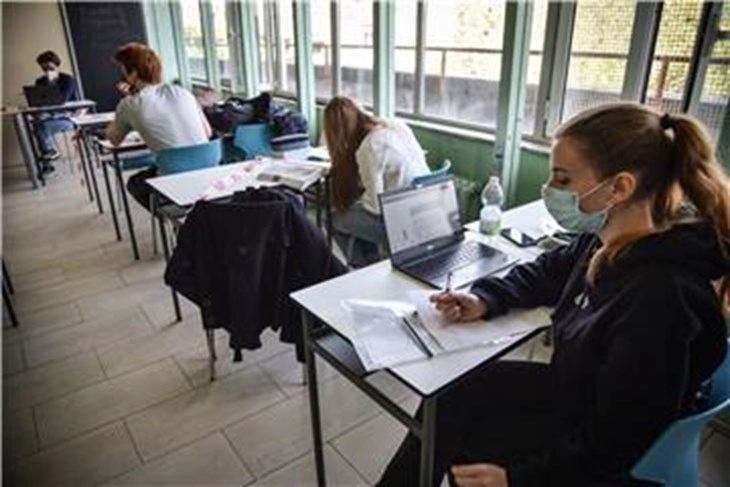UNICEF is calling for national solidarity to keep schools safe and open

Skopje, 26 January 2022 (MIA) – UNICEF is encouraged by the Commission on Infectious Diseases’ recommendation to open schools for in-person learning on 1 February and calls for national solidarity to keep schools safe and open throughout the school year. Any prolonged national closures of schools will further exacerbate learning losses and continue to have a negative impact on children’s emotional wellbeing.
“The decision to reopen schools for in-person learning is a decision of the Government. We recognise that these are considered in the context of the COVID-19 epidemiological situation and the evolving understanding of the risks. However, they must also consider the impact of prolonged school closures on children’s learning and wellbeing,” said Patrizia DiGiovanni, UNICEF Representative.
She stressed that schools are an essential public service, a place for academic learning and critical to help children fulfill their potential.
“Closing schools for in-person learning due to an increase in community transmission of COVID19, should not be the first response, rather should only be considered when there are no other alternatives,” DiGiovanni pointed out.
She noted that distance learning is an alternative measure but should only be used as a measure of last resort.
“Furthermore, while online and digital technologies enhance the learning experience, they cannot replace the methods used by teacher during face-to-face learning nor the peer interaction in the long term. Research with school management, teachers and parents showed that while distance education helped to keep children learning, more than half of all teachers saw an increase in the number of students who struggled or failed to acquire what they were being taught,” DiGiovanni said.
In addition to learning loss, she added, school closures have had a negative impact on children’s mental health, reduced their access to other services provided through schools, and increased their risk of violence. With risk mitigation measures in place, schools have proven to be safe environments for children and not be the main driver of community transmission.
“We are approaching the end of the second year of the pandemic. During this time, disruptions to education have lasted longer than restrictions imposed on other sectors in the country. UNICEF is calling for national solidarity with children to keep schools safe and open. Governments – national and local - need to ramp up support so that schools have the resources they need to continue practicing proven prevention measures, rebuild learning loses, and introduce new programmes to support children’s mental health and wellbeing,” DiGiovanni stressed.
UNICEF, she noted, is also calling on society to do their part to reduce the transmission of the virus in the community.
“We must all be more vigilant and disciplined to follow the prevention measures so that we keep COVID19 out of schools. We need to continue to be responsible, to wear a mask, practice hand hygiene, physical distance, get vaccinated against COVID-19 if we qualify and if we have symptoms get tested and isolate,” said Patrizia DiGiovanni, adding that “2022 needs to be the year that the best interests of children and education, are a national priority and take precedence.”







